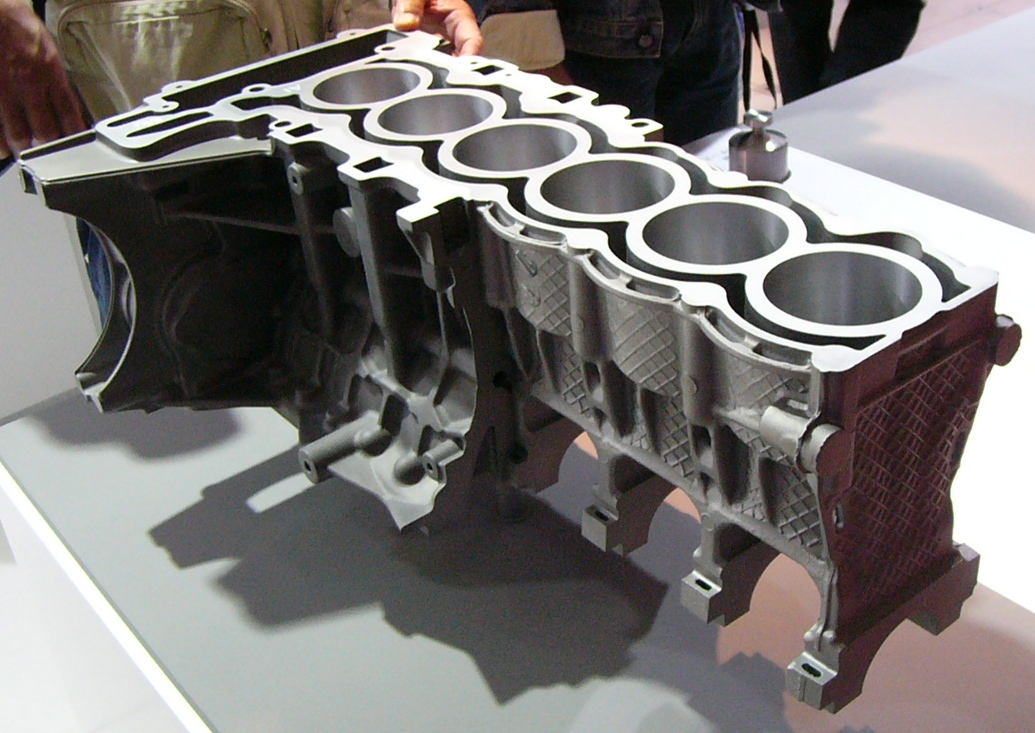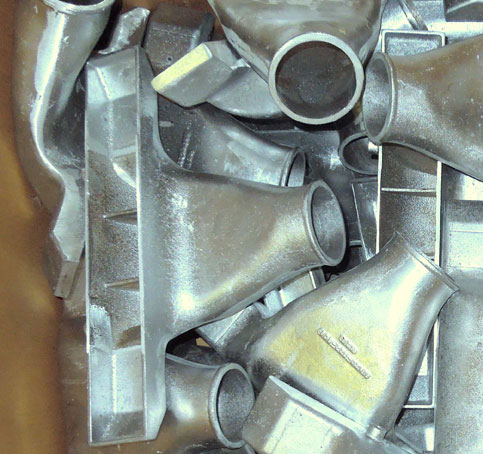The Numerous Usages of Aluminum Castings: A Comprehensive Guide for Industry Professionals
Aluminum spreadings play an essential role throughout numerous industries, thanks to their distinct buildings. These durable and light-weight components are important in automotive and aerospace applications. Understanding their advantages and the manufacturing processes included can greatly impact performance and efficiency. As modern technology breakthroughs, brand-new innovations remain to arise. Sector specialists must consider these elements to make informed options. The ramifications of these developments are worth discovering even more.
Advantages of Light Weight Aluminum Castings in Different Industries
Aluminum spreadings supply various benefits across different sectors, making them a favored selection for numerous applications. One of the primary advantages is their lightweight nature, which adds to total power effectiveness in transport and equipment. This decreased weight additionally improves simplicity of managing and installation, causing reduced labor costs.
Moreover, light weight aluminum spreadings display superb rust resistance, prolonging the lifespan of elements in severe atmospheres. Their thermal and electrical conductivity enables reliable heat dissipation and reliable electrical applications.
Additionally, light weight aluminum can be conveniently alloyed and controlled, making it possible for the creation of complex forms and styles that meet certain engineering demands. This convenience supports development in industries such as automobile, aerospace, and durable goods.
The recyclability of aluminum lines up with sustainable methods, making it an eco pleasant alternative for modern-day production. On the whole, the benefits of light weight aluminum castings place them as vital products in numerous sectors.
Key Manufacturing Processes for Light Weight Aluminum Castings
A selection of making processes are made use of to produce aluminum castings, each tailored to meet particular application requirements and manufacturing quantities. Among one of the most usual techniques are sand casting, die casting, and financial investment spreading.

Investment casting, also known as lost-wax spreading, provides remarkable surface finishes and complex details, usually made use of for smaller, accuracy elements. Furthermore, gravity spreading uses the pressure of gravity to fill up mold and mildews, suitable for larger castings where accuracy is less vital. Each procedure has its advantages, providing to diverse commercial demands while maximizing performance and high quality in light weight aluminum casting manufacturing.
Applications of Light Weight Aluminum Castings in Automotive and Aerospace
In many applications within the auto and aerospace sectors, light weight aluminum castings play a vital role because of their lightweight residential properties and superb strength-to-weight ratio. In the auto industry, elements such as engine blocks, transmission situations, and wheel rims are often produced making use of aluminum spreadings. These components benefit from minimized weight, causing enhanced gas efficiency and boosted efficiency.
In aerospace, light weight aluminum castings are important for structural components, including aircraft structures, landing gear, and engine real estates. The material's resistance to rust and capability to withstand high temperatures make it excellent for these demanding applications. Furthermore, aluminum castings help with complicated geometries, enabling the design of complex components that add to general airplane efficiency.
Innovations and Developments in Aluminum Spreading Innovation
As sectors continue to evolve, innovations in light weight aluminum spreading technology are driving significant enhancements in efficiency and performance. Advanced techniques such as 3D printing and spreading simulation software application have actually transformed conventional techniques, permitting for extra specific styles and reduced waste. These innovations allow suppliers to develop complex geometries that were formerly unattainable, enhancing the adaptability of aluminum castings.
In addition, the growth of new alloy make-ups and therapy methods has improved mechanical buildings, making spreadings lighter yet more powerful. Automated processes are also being integrated, reducing human error and boosting manufacturing speed.

Best Practices for Picking and Making Use Of Light weight aluminum Castings
When utilizing and selecting aluminum castings, careful factor to consider of certain standards can considerably influence the end product's efficiency and long life. Industry specialists must examine the particular application needs, consisting of load-bearing abilities, rust resistance, and thermal conductivity. Picking the proper alloy is important, as different alloys offer differing staminas and qualities.
Furthermore, recognizing the casting procedure-- whether sand casting, die spreading, or financial investment casting-- will influence the final item's quality and cost-effectiveness. Quality control actions, such as non-destructive testing and dimensional examinations, are necessary to assure that the spreadings fulfill industry standards.
Additionally, proper handling and storage of light weight aluminum spreadings can prevent damage, guaranteeing peak efficiency. Ultimately, collaborating with respectable vendors who prioritize quality assurance can improve the dependability of the finished elements. By sticking to these ideal techniques, market specialists can maximize the benefits of light weight aluminum spreadings in their applications.
Often Asked Concerns
What Are the Environmental Effects of Aluminum Casting Manufacturing?
Light weight aluminum spreading manufacturing can cause considerable environmental influences, consisting of greenhouse gas discharges, energy usage, pop over to this site and source depletion. In addition, incorrect waste monitoring may result in soil and water contamination, affecting neighborhood ecosystems and communities.
How Do Light Weight Aluminum Castings Compare to Other Steel Castings?
Aluminum castings are lighter and corrosion-resistant contrasted to other steel spreadings like iron or steel. They offer premium thermal and why not look here electric conductivity, making them ideal for applications where weight and longevity are vital elements.
What Is the Expense Distinction Between Light Weight Aluminum and Various Other Products?
The cost of light weight aluminum castings generally ranges from moderate to high, typically much more affordable than stainless-steel but costlier than some plastic alternatives. Aluminum Foundry. Factors such as production intricacy, material, and volume specs considerably affect general prices
Can Aluminum Castings Be Recycled?
Aluminum spreadings can without a doubt be reused. This process significantly reduces power consumption and environmental effect contrasted to generating brand-new aluminum, making recycling a vital practice in promoting sustainability and resource preservation within various sectors.
What Safety Procedures Should Be Taken During Aluminum Spreading Processes?
Throughout light weight aluminum spreading procedures, essential precaution consist of putting on safety equipment, making certain proper air flow, making use of heat-resistant devices, keeping tools, and adhering to security procedures to avoid direct exposure to harmful materials and decrease the risk of mishaps. (Aluminum Foundry)
Sand casting includes producing a mold from sand, permitting for huge castings and complex forms. Financial investment casting, also recognized as lost-wax spreading, supplies outstanding surface coatings and intricate details, commonly used for smaller sized, precision components. In addition, gravity spreading makes use of the force of gravity to fill up mold and mildews, suitable for larger castings where precision is much less essential. Additionally, recognizing the casting process-- whether sand spreading, die casting, or investment casting-- will certainly affect the final item's high quality and cost-effectiveness. Aluminum castings are lighter and corrosion-resistant compared to other metal spreadings like iron or steel.